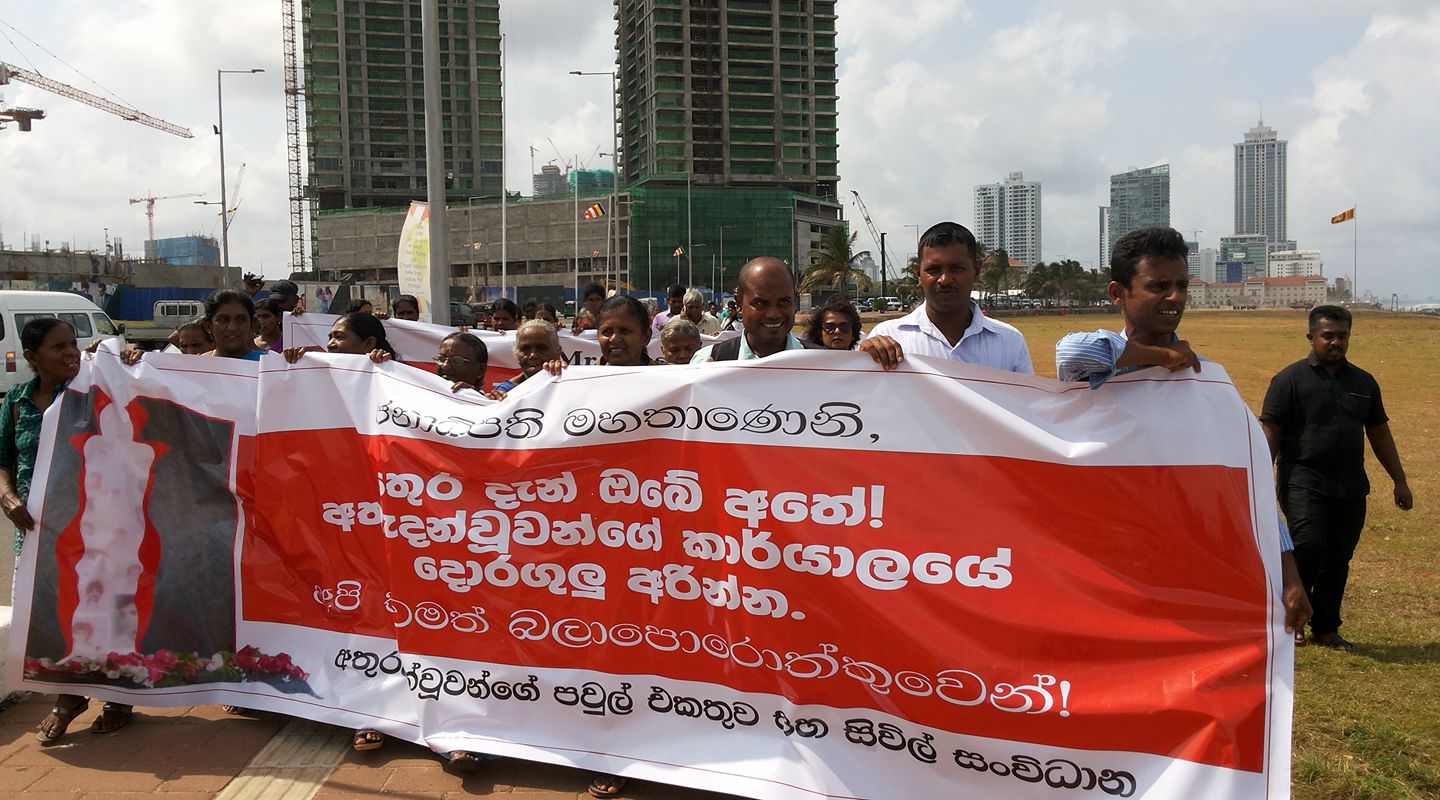SRI LANKA: THE CHALLENGES TO DEMOCRATISATION AND OUTLOOK OF POLITICAL TRANSITION


Image: Activists are calling on the government to establish the OMP which the president is keeping in his drawer.
Democracy Reporting International (DRI)/May 2017.
3. THE CHALLENGES TO DEMOCRATISATION.
There are three key challenges to the democratisation process that could prove to be divisive and undermine the current momentum for reforms and, in particular, the two thirds majority in parliament to adopt the envisaged constitutional reforms.
Negotiating the State Structure
The constitutional negotiation on how to re-structure the state is fraught with difficulties that have bedevilled Sri Lanka for decades. The issue of de-centralisation was a root cause of the island nation’s long-running armed conflict and the crux of the ceasefire agreements brokered between the government and LTTE, although no lasting solution was found. Today, the issue of state structure touches upon the key sensitivities of all Sri Lankans and is intimately bound up with questions of religious, linguistic and cultural rights.
For Tamil representatives, an ideal outcome would be a federal state in which the two Northern provinces would merge into one federal unit. Such a proposal is anathema to many in the majority Sinhalese community, especially those who view de-centralisation as a prelude to secession. They attach high importance to the current constitutional language of Sri Lanka as a ‘unitary’ state. At the present moment, there appears to be much good wi
l to find an agreeable solution. However, the issue of state structure will be the principle rallying point for opposition to the overall process.
Sinhalese nationalists will argue that any concession on the state structure is tantamount to giving away at the negotiation table what the army achieved on the battlefield. For many Tamils, nothing short of ironclad guarantees of autonomy will be acceptable. It is somewhere between these two poles that a creative solution must be found.
Dealing with the Past: Transitional Justice
